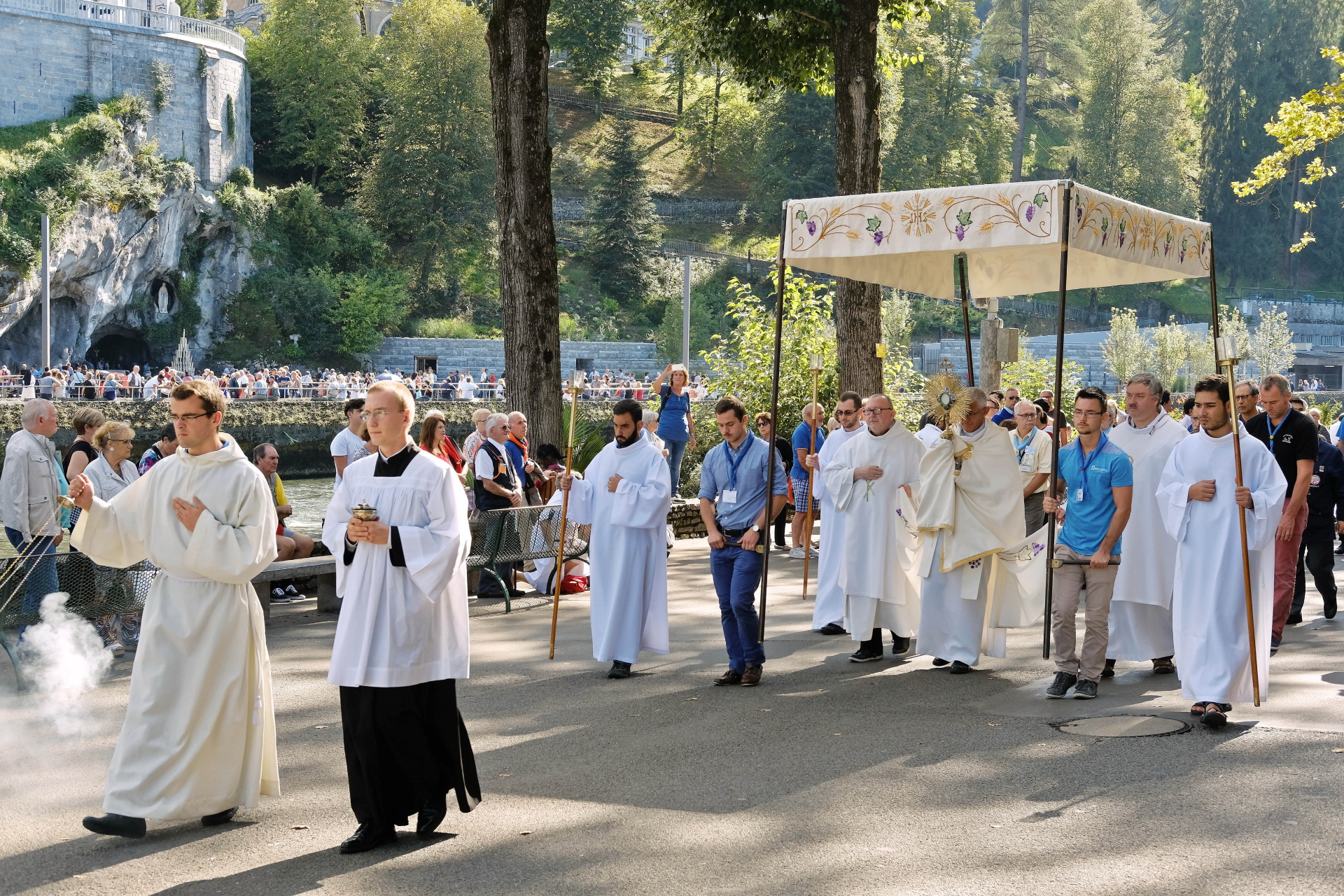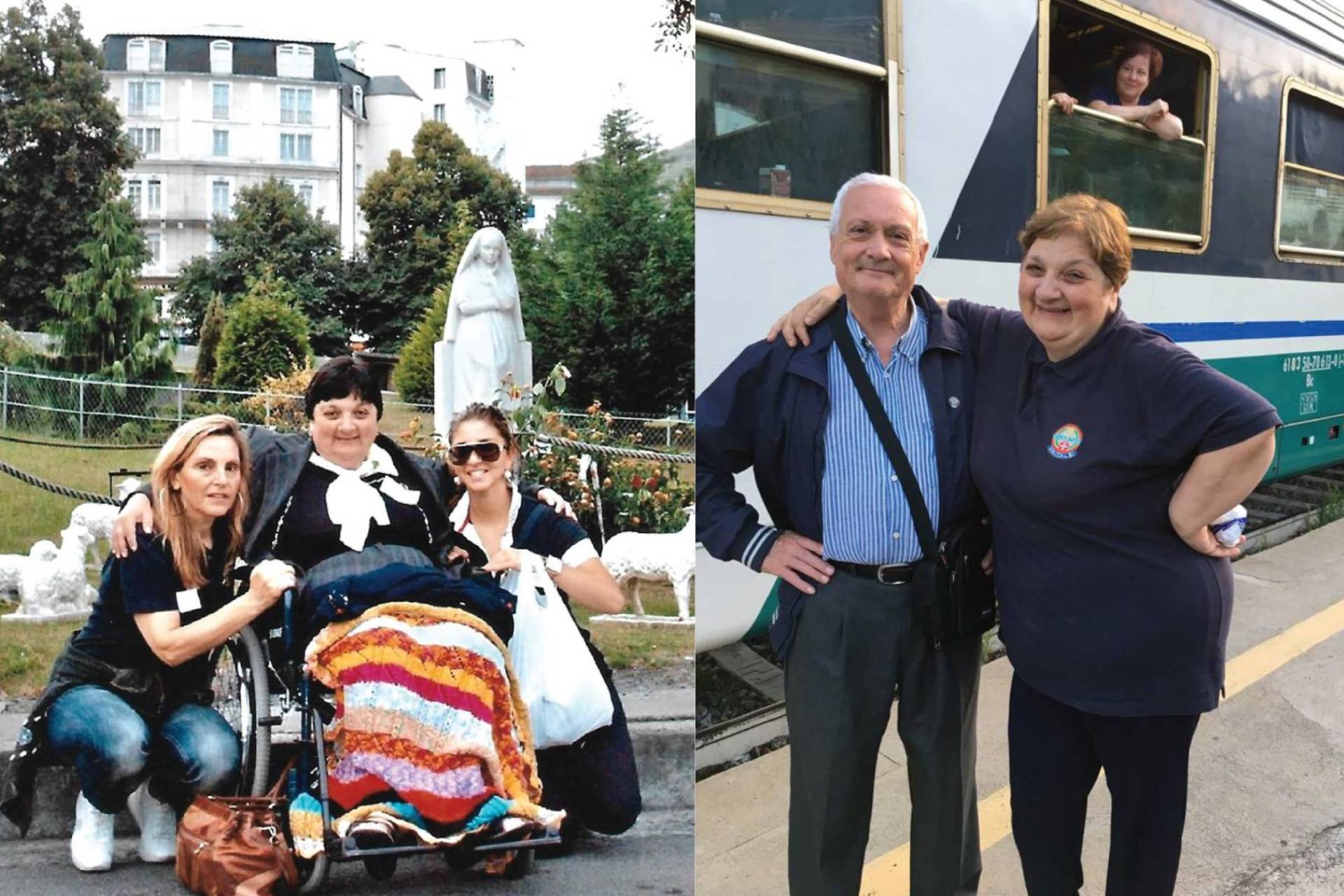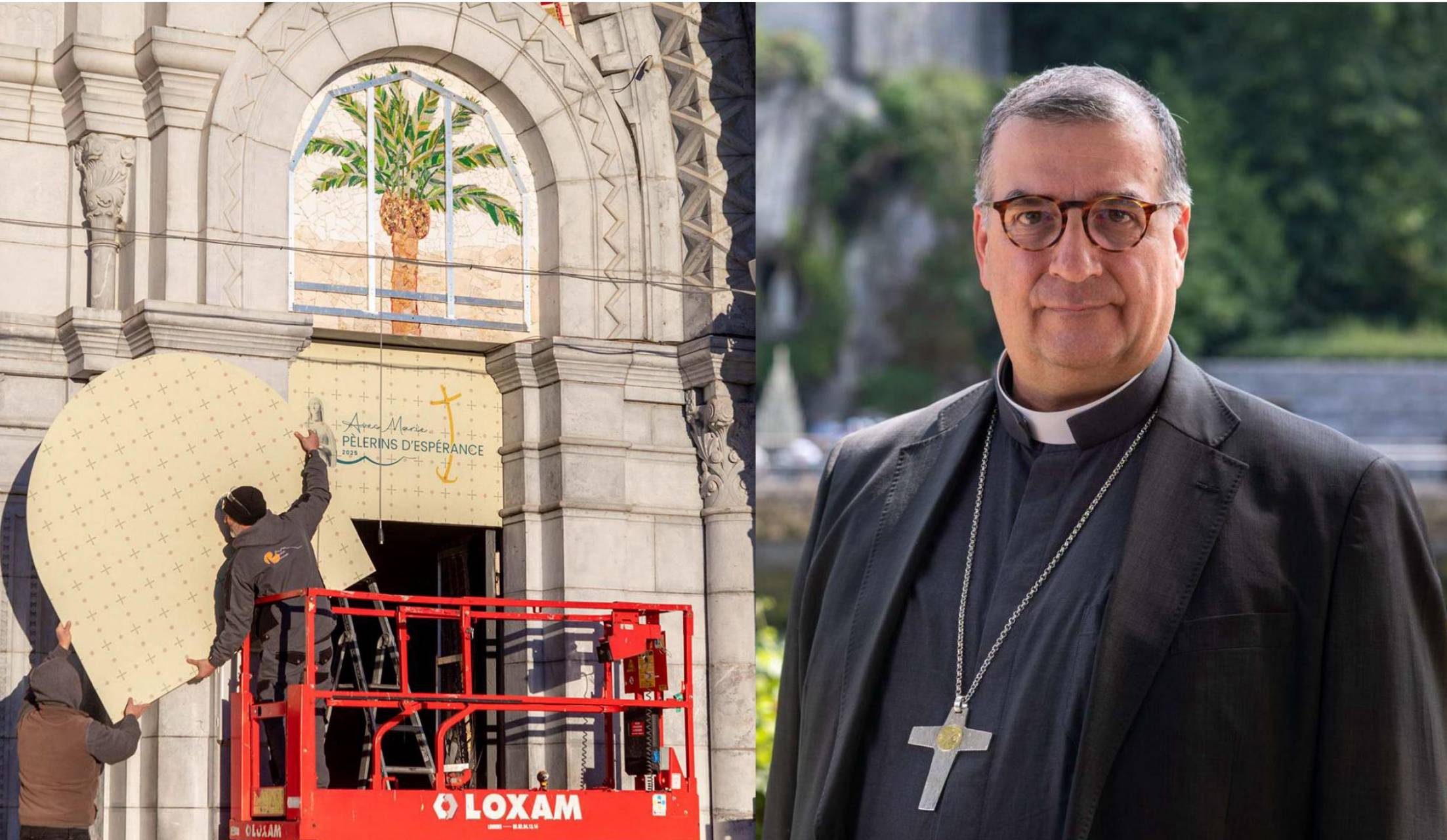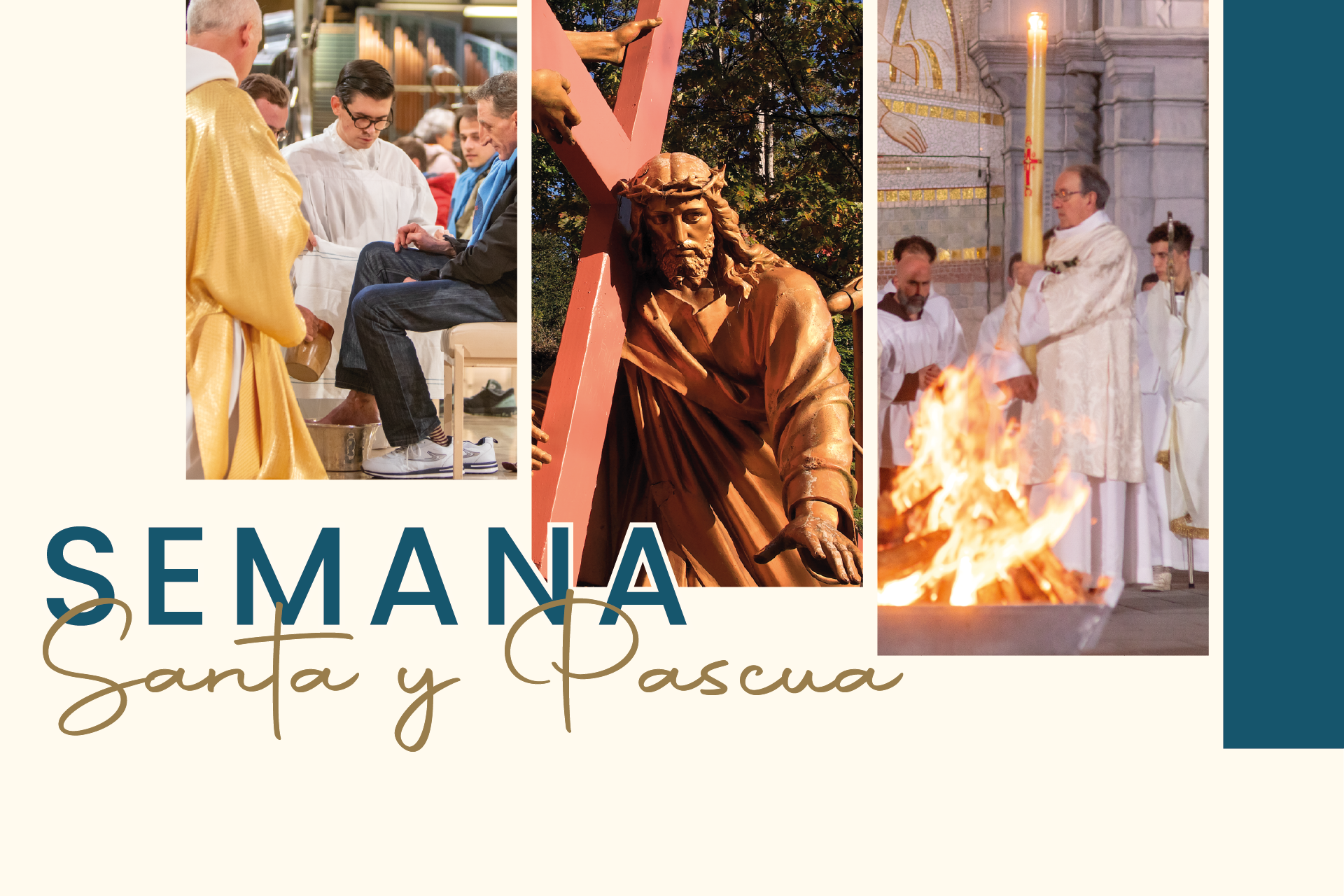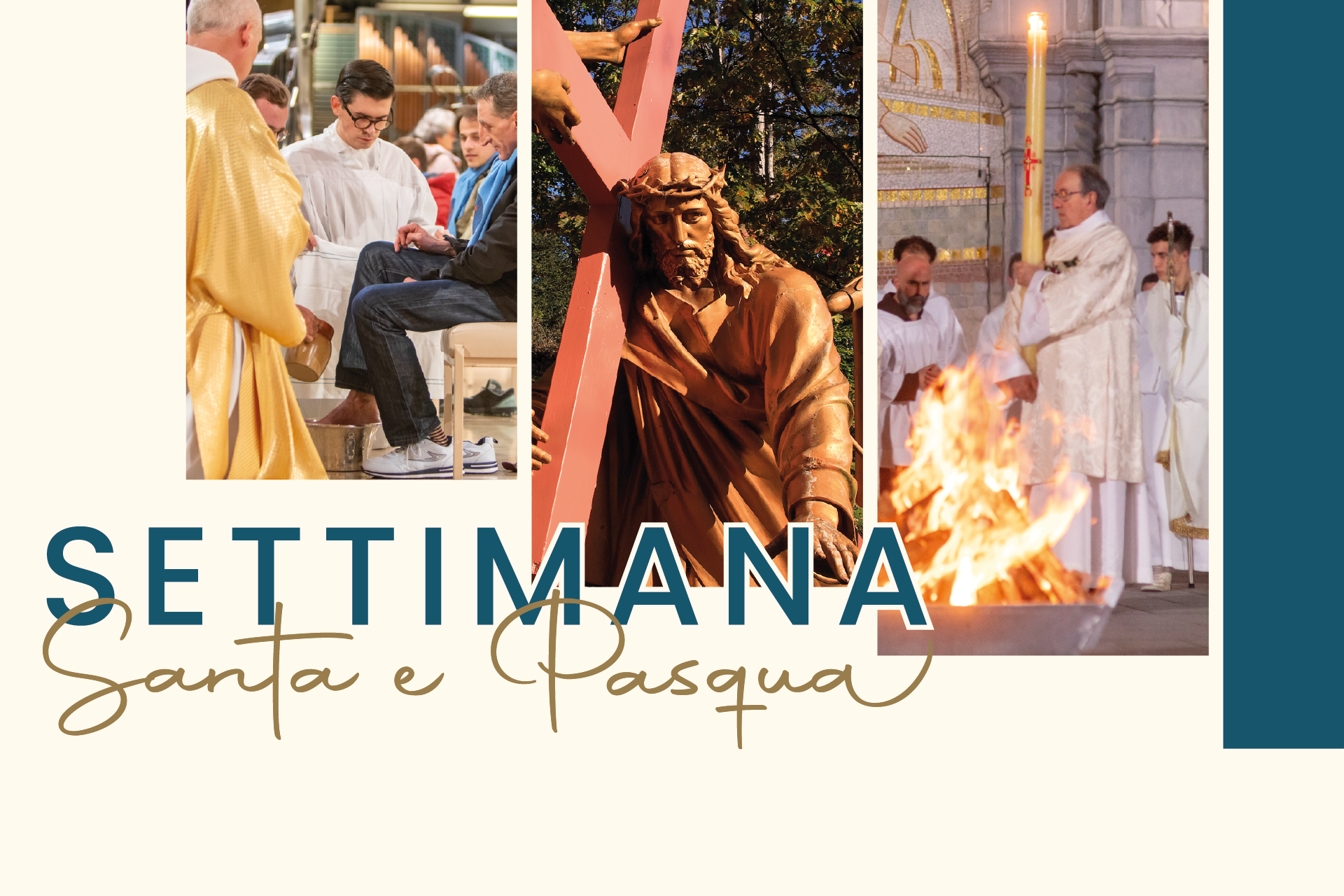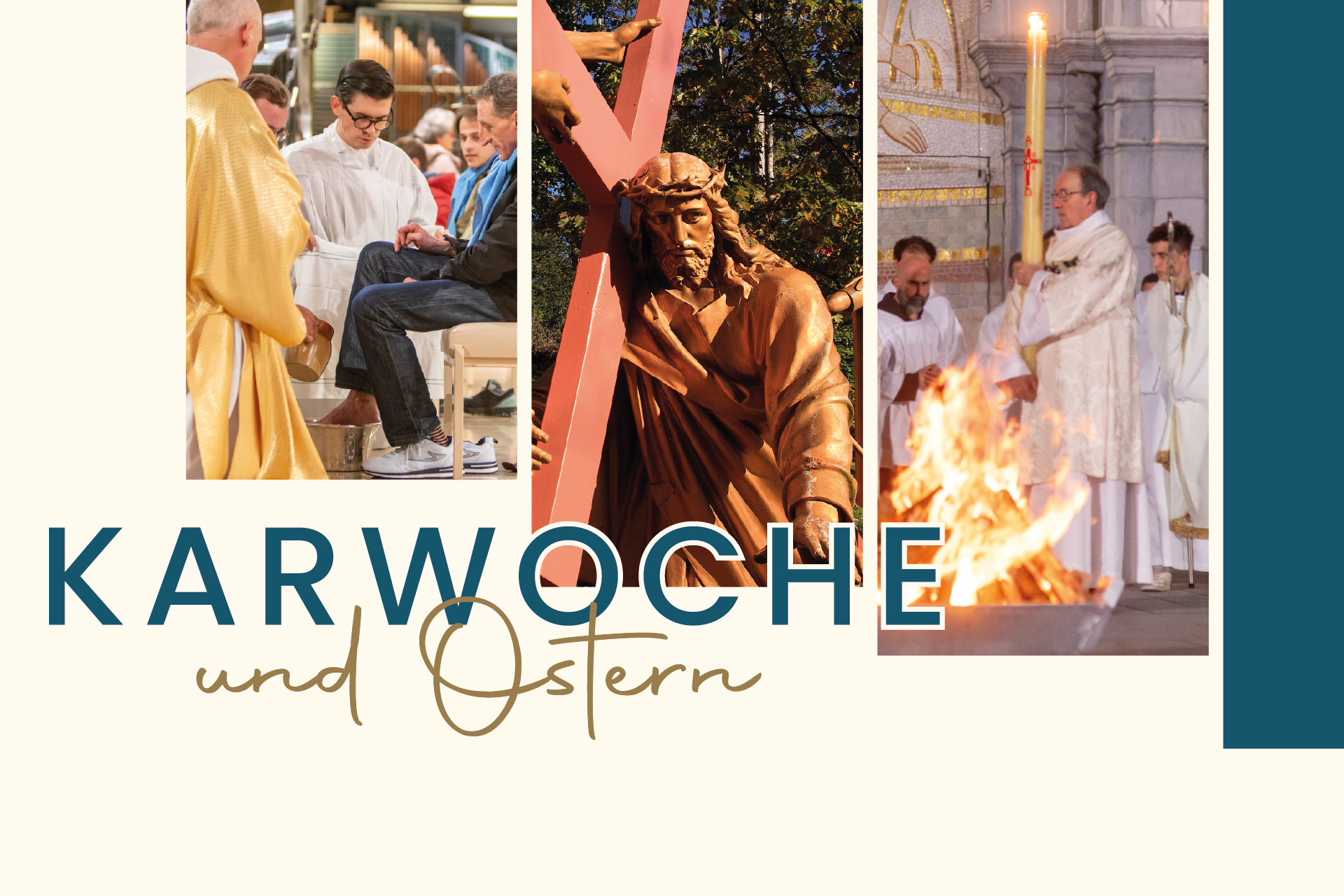The Feast of the Blessed Sacrament (2nd Sunday after Pentecost) is one of the most important feasts in the Catholic Church because, in it, we celebrate the presence of Christ in the Eucharist. On this day, the faithful celebrate the institution of the Eucharist, which took place on Maundy Thursday, during the Last Supper, when Jesus Christ transformed the bread and wine into his body and blood, and invited the apostles to be united with him.
The Eucharistic procession in Lourdes
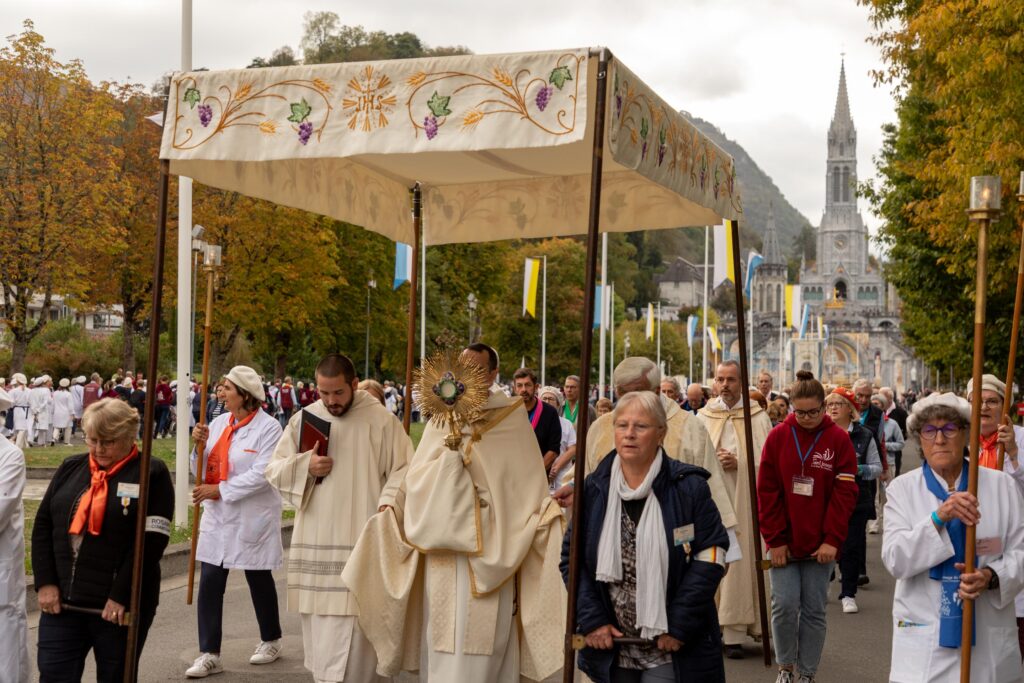
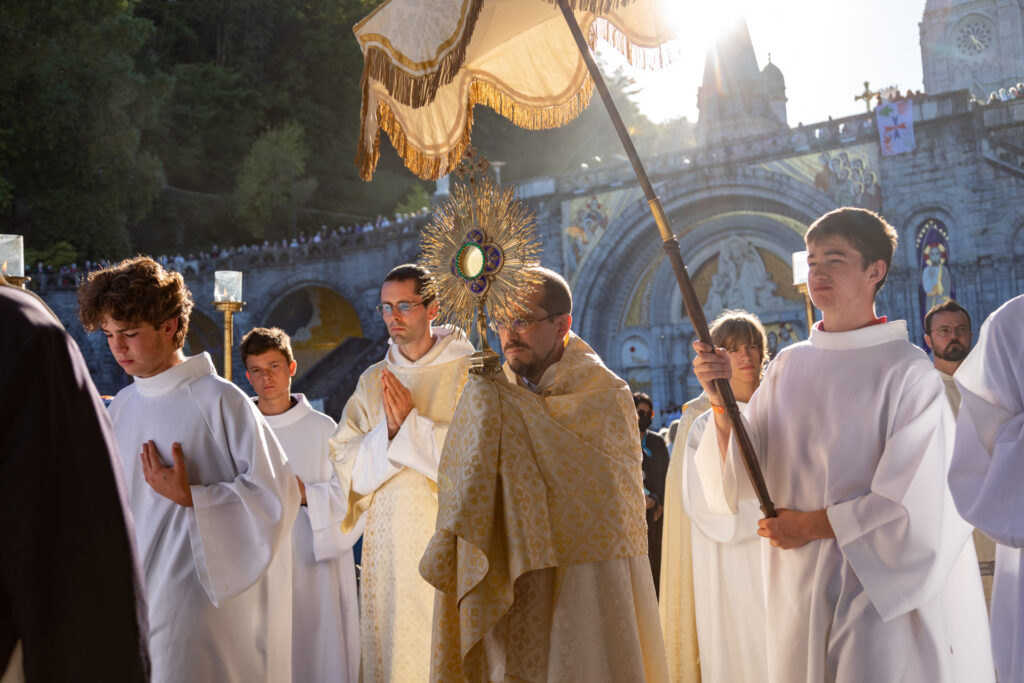
The Eucharistic procession in Lourdes takes place every day at 5:00 p.m. (from Easter to All Saints’ Day). It begins on the Podium opposite the Grotto and arrives at the Basilica of Saint Pius X, passing across the processions esplanade, with a time of Adoration and the long-awaited “blessing of the sick”.
All pilgrims are invited to walk with those who are suffering, following behind the priest who carries the monstrance and, like them, to receive the blessing that Jesus gives as he comes into our midst. Many miraculous healings have taken place during the exposition of the Blessed Sacrament.
Bernadette made her First Holy Communion on 3rd June 1858, in the chapel of the hospice, on the feast day of the Blessed Sacrament, also called “Corpus Christi”, alongside other disadvantaged children and supported by the Sisters of Nevers.
Since 1866, the date on which masses were authorised in the Sanctuary, pilgrims have been able to come to the Sanctuary to adore the Blessed Sacrament.
In the afternoon, after the Salutation of the Blessed Sacrament at the Grotto and before it reached the Crypt, the bishop or the priest who carried the Blessed Sacrament walked to the Rosary Esplanade to “take the blessing to the sick” who, at that time, were always kept apart from the other pilgrims. It was not until the end of May 1968 that sick pilgrims were able to take part in the Blessed Sacrament procession, which ended with the “blessing of the sick”.
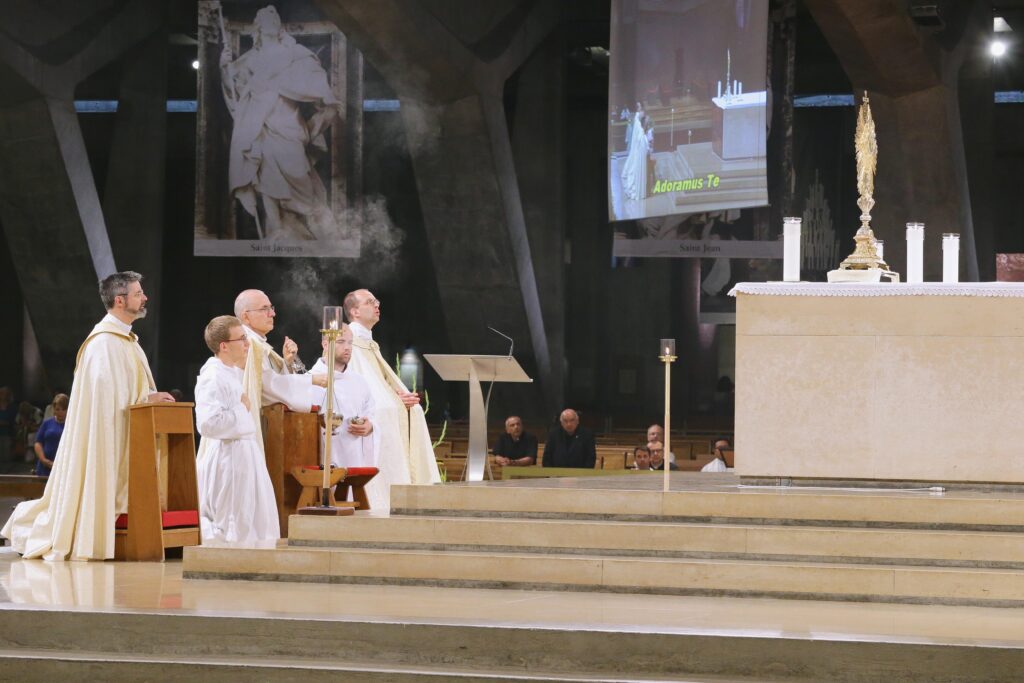
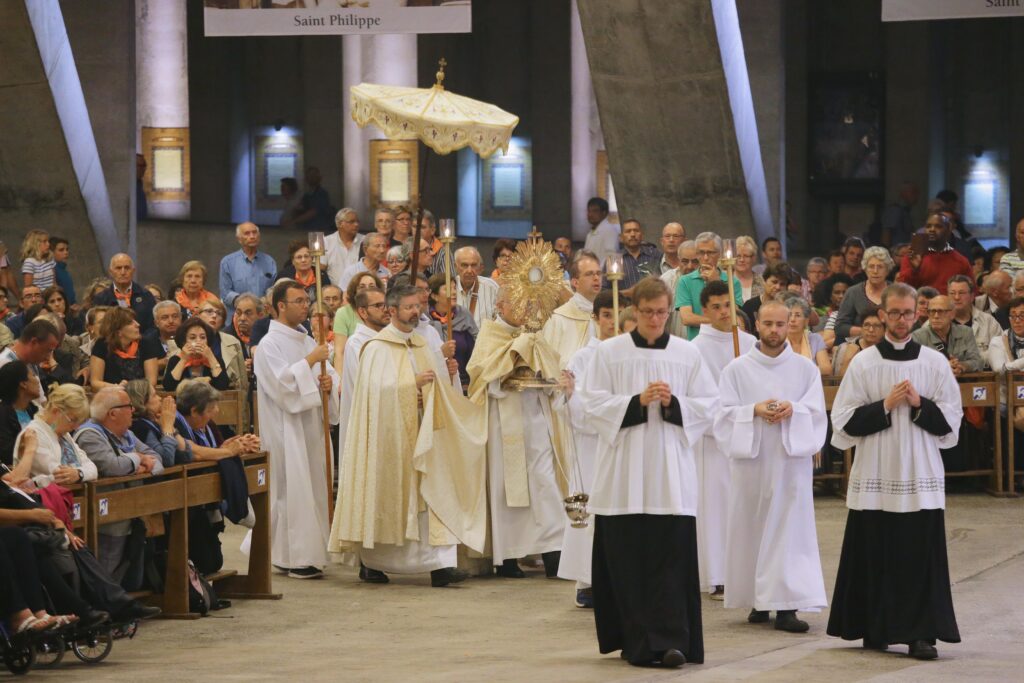
Blessed Sacrament Processions
“A distinctive feature of the celebration of this solemnity [is] a procession in which the Eucharist is carried solemnly and with singing through the streets, and the Christian people give public witness to their belief in the sacrament of the Eucharist and to their devotion” (canon 386 of the Ceremonial of Bishops ).
Many towns and villages hold Blessed Sacrament processions, as a demonstration of faithful and popular piety.


